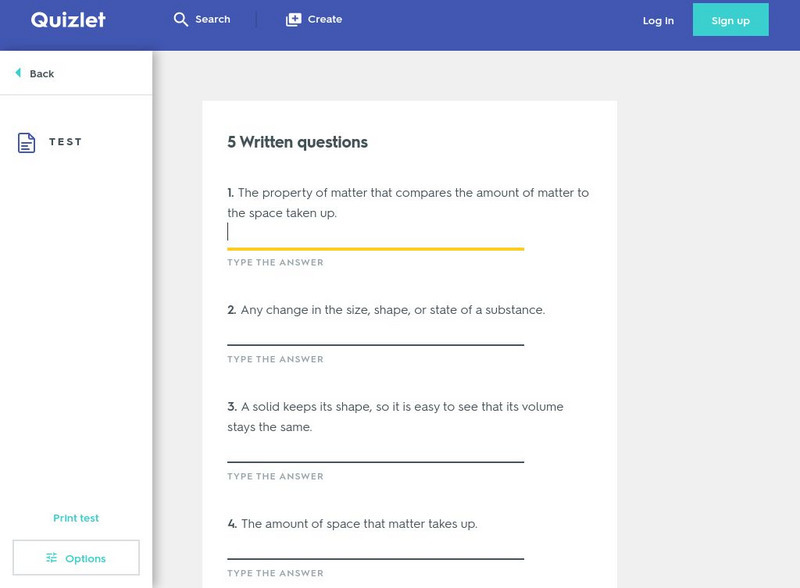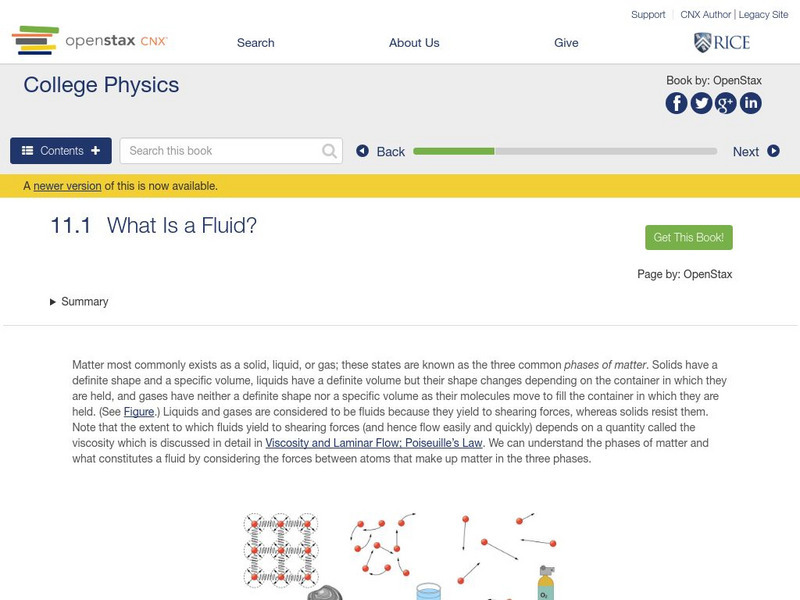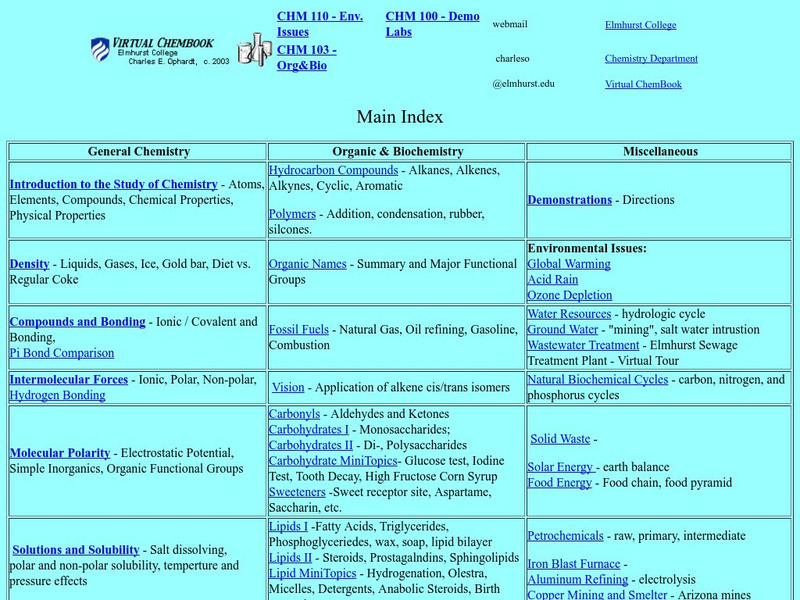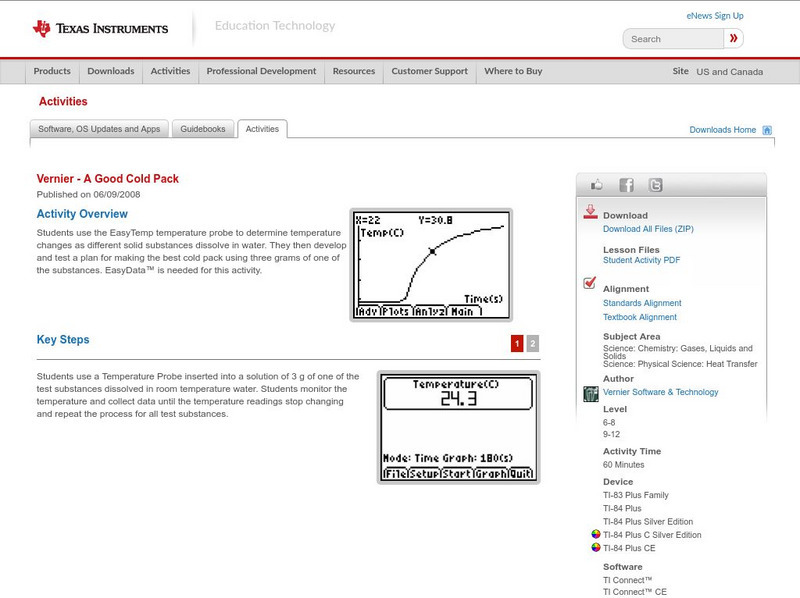Science Education Resource Center at Carleton College
Serc: Freezing and Phase Change: How Do You Make Ice Cream?
Students will be expanding a study of phase changes after experiences with exploration of the three phases of matter. They apply what they have learned through freezing water and create a tasty ice cream treat.
Quizlet
Quizlet: 6th Grade Science Vocabulary: Solids, Liquids, and Gases: Test
This interactive assessment features 7 matching, 7 multiple-choice, and 6 true/false questions over 20 terms related to Solids, Liquids, and Gases (the three states of matter).
Quizlet
Quizlet: 6th Grade: Science Vocabulary: Solids, Liquids, and Gases: Flashcards
This set of interactive flashcards focuses on 20 terms related to Solids, Liquids, and Gases (the three states of matter).
New York University
New York University: States of Water
Use this resource to learn about the three different phases of water; solid, liquid, and gas. What happens to water as it changes into a solid or gas? Includes short and easy to do activity.
ClassFlow
Class Flow: What Is Matter?
[Free Registration/Login Required] This flipchart introduces fifth graders to the three states of matter. Concepts include the affect of temperature on matter and physical properties.
OpenStax
Open Stax: What Is a Fluid?
From a chapter on Fluid Statics in a Physics textbook. This introductory section of the chapter covers the three common phases of matter, their physical properties, and how atoms are arranged in solids, liquids, and gases. Includes a...
BBC
Bb Ci Schools: Revisewise Science: Solids, Liquids, Gases
This site contains an interactive activity in which students can learn about the three states of matter. There is also a factsheet that lists numerous properties of liquids, solids, and gases. The factsheet also uses water as an example...
Other
Elmhurst College: Virtual Chembook: What Are Physical Properties and Changes?
Brief descriptions of physical properties, physical changes, and the process of sublimation. The three states of matter, melting point, and boiling point are described. There is one link on the page, which leads to an explanation of...
Center for Literacy and Disability Studies, University of North Carolina at Chapel Hill
Tar Heel Reader: Forms of Water
Find out how water can exist in the three different pahses of matter.
ClassFlow
Class Flow: Matter Review
[Free Registration/Login Required] Review the three forms of matter with this flipchart. This could also be used for a pre-assessment before a unit on matter.
Florida State University
Florida State University: Intermolecular Forces: Changes of State
Discusses the changes of state that can occur for the three different types of matter (solids, liquids, and gases) and different types of heat energy that have been defined by scientists.
CK-12 Foundation
Ck 12: Plix: Solid, Liquid and Gas
[Free Registration/Login Required] In this interactive you will move the red dot below each flask to observe how particles move in each different phase of water. You will need a sign-in to access this media, but it will be well worth...
HotChalk
Hot Chalk: Lesson Plans Page: Science Lesson on Water
This activity will teach students about the three states of water found on our planet: solid, liquid gas. They will learn to distinguish the differences between these states and will be able to give examples of each.
University of Notre Dame
Und: Properties of a Pure Substance [Pdf]
Often we find that different phases of pure substances can exist in equilibrium with one another. Let us consider an important gedankenexperiment (Latin-German for "thought experiment") in which we boil water. Ordinary water boiling is...
Other
Atoms in Motion: All Matter Is Made of Atoms
Atoms are very, very small. Atoms are so small that it is often said that there are as many atoms in a single grain of sand as there are grains of sand on all of the world's beaches - certainly a difficult thing to prove, but you get the...
Texas Instruments
Texas Instruments: A Good Cold Pack
Students use the EasyTemp temperature probe to determine temperature changes as different solid substances dissolve in water. They then develop and test a plan for making the best cold pack using three grams of one of the substances....














